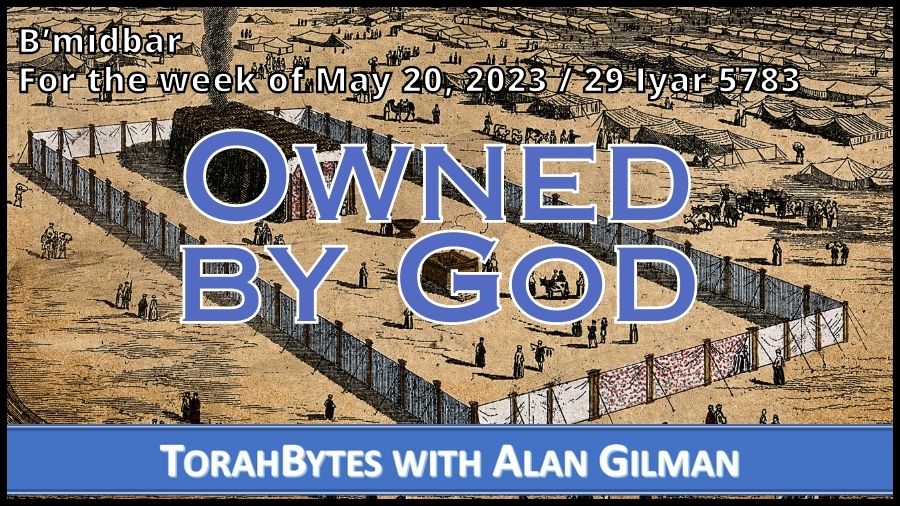For the week of May 20, 2023 / 29 Iyar 5783

B’midbar
Torah: B’midbar/Numbers 1:1 – 4:20
Haftarah: 1 Shmuel/ 1 Samuel 20:18-42
Originally posted the week of May 15, 2010 / 2 Sivan 5770
Revised version from the book Torah Light: Insights from the Books of Moses
Behold, I have taken the Levites from among the people of Israel instead of every firstborn who opens the womb among the people of Israel. The Levites shall be mine, for all the firstborn are mine. On the day that I struck down all the firstborn in the land of Egypt, I consecrated for my own all the firstborn in Israel, both of man and of beast. They shall be mine: I am the LORD. (B’midbar/Numbers 3:12–13)
The Levites (Hebrew, levi-im), the descendants of Jacob’s son Levi, fulfilled a special function among their people. Instead of being given territory within the Land of Israel like the other tribes, they were to be special religious servants. A subset of the Levites were the priests (Hebrew, cohanim), the descendants of Moses’s brother Aaron, who offered the sacrifices. The rest of the Levites assisted the priests in their duties and fulfilled other religious tasks throughout the nation. The Levites belonged to God in a way the rest of the people did not, for their daily concerns were consumed with the service of God rather than normal human endeavors.
The setting aside of the Levites was not simply because there was a need for religious ministers. Rather, they stood in the place of all the firstborn males who survived the Exodus. God rescued Israel from slavery in Egypt by striking the Egyptians with ten plagues. The final plague was the killing of the firstborn males, both human and animal. To protect the people of Israel from this, God told them to sacrifice a lamb and apply its blood to the doorframes of their houses. When the Angel of Death came to strike down the firstborn males, he passed over the houses upon which the blood was applied. This is why the festival commemorating this event is called Passover (see Sh’mot/Exodus 11:1–12:13).
But how does this relate to the Levites? The tenth plague was not limited to the striking down of the Egyptian firstborn only, but rather all the firstborn of the land of Egypt regardless of nationality. The stubborn disobedience of Pharaoh, king of Egypt, brought general destruction upon his land. There were certain plagues in which the people of Israel experienced special protection, but not all of them. With regard to the tenth plague, if any Israelite home did not follow God’s instructions, their firstborn males would have perished as well. Therefore, the preservation of the Israelite firstborn males was due to God’s special grace upon them. Thus, the firstborn males of Israel were indebted to God to a much greater degree than the rest of the nation. While the whole nation was indebted to God for their freedom, the firstborn males were also indebted to him for their very lives.
The preservation of the firstborn males and their special relationship to God was to be remembered throughout future generations. Instead of the actual firstborn males of the whole nation being called into religious service, God determined that the Levites should stand in their place. Their service to God, therefore, represented God’s unique ownership of the firstborn males.
Just as the Levites were God’s special possession, so are all followers of the Messiah. Like Egypt of old, God’s judgment is coming upon the whole earth. Due to our stubborn refusal to obey God according to his standards, God condemns everyone to eternal destruction unless we apply the blood of Yeshua’s sacrifice to our lives. Like it did over the firstborn males, God’s judgment will pass over us if we follow his instructions and entrust ourselves to Yeshua the Messiah.
Like the firstborn males, if we believe in Yeshua, we are indebted to him, not just for our freedom, but for our very lives. Therefore, like the Levites, we are owned by God. We no longer have the freedom to live however we wish, pursuing our own goals and desires. Rather, as his special possession, we are set apart to serve his interests alone.
Scriptures taken from the English Standard Version